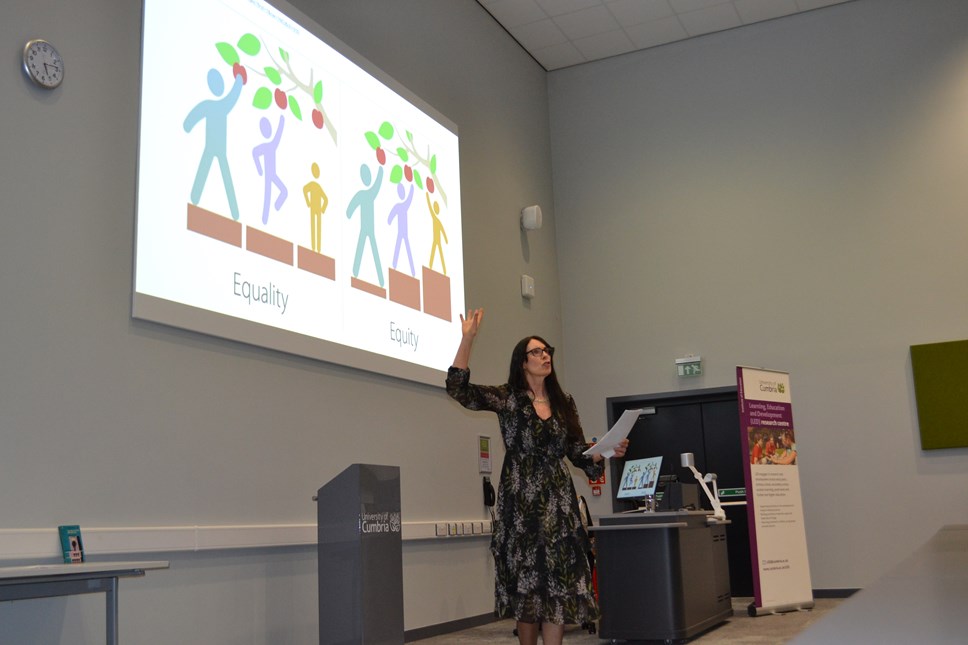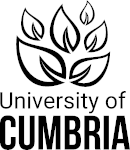
Challenge white, middle class perceptions to bring equity, not equality, to education, says social justice expert
An education expert says the current ‘white, male dominated and middle class’ view of education must be challenged to help successfully tackle social injustice.
Sally Elton-Chalcraft, professor of social justice in education at the University of Cumbria, believes challenging existing laws, systems and perceptions will help bring equity – fairness – in education to everyone regardless of their gender, background, ethnicity, intelligence, religion and beliefs.
Sally cites the success on the pitch of footballer Mo Salah and university scholarships for UK black students provided by award-winning British rapper and songwriter Stormzy as real-life examples of social justice in action.
Her extensive research, carried out with others, also questions about the inclusion of a statement in the Teachers’ Standards that teachers ‘should not undermine fundamental British values’, a policy that research findings she states ‘advances whiteness and reinforces its supremacy’.
She will be discussing why teachers need to be careful about promoting fundamental British values at an event in Liverpool on 11 March.
Sally, who is also director of the Learning, Education and Development research centre at the University of Cumbria, believes future teachers and improving their training to enable them to challenge, recognise difference and be inclusive are among the solutions that can bring positive change. Others include a redistributing of resources and raising ambitions of all learners regardless of the barriers they face.
The desire for everyone to have the same opportunity to access education and success regardless of the barriers faced – equity, not equality, in education – was the focus of Sally’s inaugural professorial lecture staged recently at the university’s Lancaster campus.
Sally said: “Pursuing social justice in education is complex. There are lots of issues to consider such as privilege, like being born rich or born talented.
“Whilst we know that inclusion is on the up and there's a strong urge for things to change, there’s a need for more training and development of teachers to address problems of inequality.”
Sally holds a number of other leading roles in education. She is joint convenor of the Religions, Values and Education special interest group for the British Educational Research Association. Her areas of expertise include Religious Education, British Values, special educational needs and school leadership.
She is also a trustee of the Lunesdale Learning Trust in Cumbria. The trust runs Queen Elizabeth School in Kirkby Lonsdale and its neighbouring Queen Elizabeth Studio School.
She has also spent time researching education in India, including perceptions of disability in Indian Christian foundation schools.
ENDS
PICTURE 1: Professor Sally Elton-Chalcraft delivering her inaugural professorial lecture at the University of Cumbria Lancaster campus
PICTURE 2: (l-r) Professor Sally Elton-Chalcraft and Ruth Harrison-Palmer, Institute of Education, University of Cumbria
NOTES TO EDITORS
- The University of Cumbria’s Institute of Education is a leading provider of initial teacher education in the UK.
- It also runs a range of postgraduate and continued professional development programmes, and offers research opportunities.
- The University of Cumbria’s Teacher Education Advancement Network (TEAN) is due to meet in Manchester on 6 and 7 May. It is available to teachers and teacher educators. Details available here.
- ‘Stormzy effect’ helps rise in black students, BBC report (11 October 2019) https://www.bbc.co.uk/news/uk-england-cambridgeshire-50005023
